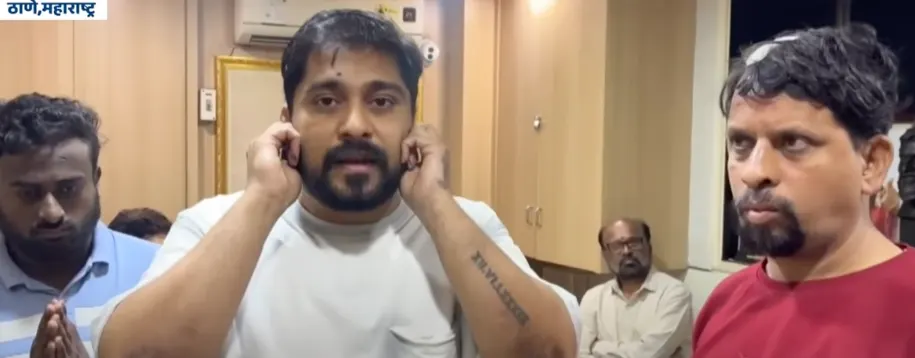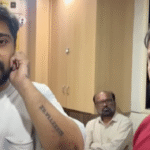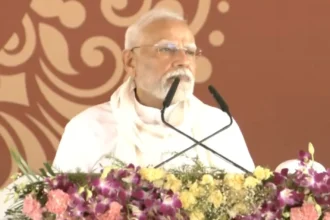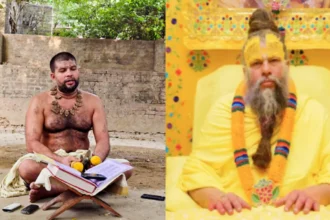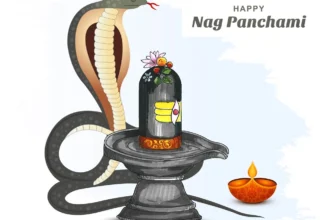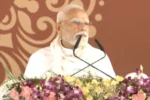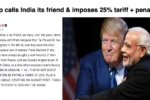Thane, Maharashtra – July 3, 2025 – A significant political and social controversy has erupted in Thane, Maharashtra, following a viral video allegedly showing former Member of Parliament (MP) Rajan Vichare, a prominent leader from the Shiv Sena (Uddhav Balasaheb Thackeray) faction, physically assaulting shopkeepers and demanding that they speak exclusively in Marathi. The incident has drawn widespread condemnation and reignited the long-standing debate around language and regional identity in the state.
The Allegations: What the Video Shows
The unverified video, which rapidly circulated across social media platforms, appears to depict Rajan Vichare in an agitated state, confronting shopkeepers in the Thane station area. Eyewitness accounts and reports accompanying the video suggest that Vichare allegedly resorted to physical violence, including slapping and forcing some shopkeepers to apologize by holding their ears. The central demand, as heard in the video and reported by various media outlets, was for the shopkeepers to converse and conduct business in Marathi.
According to reports, the incident stemmed from a previous altercation where a Marathi youth was allegedly assaulted by migrant workers at a mobile recharge shop in Thane. Rajan Vichare’s actions are being portrayed by some as a response to this earlier incident, asserting the importance of the Marathi language and “Marathi pride” in the region.
A History of Language Politics in Maharashtra
This incident is not an isolated one but rather reflects a recurring theme in Maharashtra’s political landscape. Parties like the Shiv Sena, and more recently the Maharashtra Navnirman Sena (MNS), have historically championed the cause of Marathi language and culture, often leading to confrontations with non-Marathi speaking communities, particularly migrants.
The core argument of these parties revolves around protecting the linguistic and cultural identity of Maharashtra and ensuring that Marathi speakers are not marginalized in their own state. However, critics often argue that such aggressive tactics border on xenophobia and undermine the inclusive fabric of a diverse city like Mumbai and its extended metropolitan region, including Thane.
Recent weeks have already seen heightened tensions over language in Maharashtra. The state government’s decision to introduce Hindi as a third language in primary schools sparked a fierce debate, with the Uddhav Thackeray faction and MNS vehemently opposing what they termed “imposition of Hindi.” While the government later clarified and formed a committee on the matter, the underlying sentiments regarding language remain volatile.
Rajan Vichare Seen Assaulting Shopkeepers – Reactions and Ramifications
The video of Rajan Vichare’s alleged actions has elicited strong reactions:
- Condemnation from Opposition and Public: Many political leaders from opposing parties, as well as a significant section of the public, have condemned the alleged violence, calling for legal action against Vichare. They argue that while promoting one’s language is acceptable, resorting to physical assault is a blatant violation of law and order.
- Support from Hardliners: Conversely, some hardline elements and supporters of the Marathi pride agenda might view Vichare’s actions as a strong stance necessary to protect their linguistic identity.
- Police Investigation: It is expected that the police will launch an investigation into the incident based on the viral video and any potential complaints from the affected shopkeepers. Legal consequences, including charges of assault and public disturbance, could follow.
- Impact on Uddhav Faction: The incident could have implications for the Uddhav Thackeray faction, particularly as they navigate the complex political landscape in Maharashtra. While it might solidify their base among Marathi hardliners, it risks alienating other communities and projecting an image of vigilantism.
The Way Forward: Dialogue vs. Division
The incident involving Rajan Vichare underscores the sensitive nature of language identity in a multicultural state. While the promotion of regional languages is crucial for cultural preservation, resorting to intimidation or violence can be counterproductive and divisive.
For a harmonious society, dialogue, education, and mutual respect are essential. Political leaders, regardless of their affiliations, have a responsibility to uphold the law and promote unity, rather than fanning the flames of linguistic friction. The incident in Thane serves as a stark reminder of the challenges in balancing regional pride with the principles of coexistence and rule of law. The coming days will reveal how the authorities and political stakeholders address this escalating controversy.
Keep following Duniya Daily for more such national news and updates!

